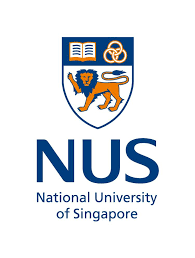The program, through faculty members associated with the Radio astronomy and Astrophysics Center – CRAAM maintains a cooperation agreement with CASLEO, Argentina, including collaborative research into Solar Physics and the Physics of the Sun-Earth Relationship at the CASLEO Solar and Heliogeophysical Laboratory.
The program maintains a cooperation agreement with the Optics Institute of Rochester University, intended to jointly develop science projects, students and faculty exchange, and short-duration courses in the area of photonic devices. The partnership is led by professors Eunézio A. de Souza (UPM) and Wayne Knox (UOR).
The program provides for cooperation in computational view and robotics, and began in 2002, when Prof. Allen Hanson was Prof. Maurício Marengoni’s Doctoral advisor. Prof. Hanson visited Mackenzie in 2012, delivering a lecture and maintaining discussions with several PPGEEC students.
The program maintains cooperation with Cornell University, USA, through Professor Michal Lipson, whose area of research focuses on the study of the properties and applications of silicon nanophotonic structures for the manufacture of circuit boards.
Professor Pedro Paulo Balbi de Oliveira did a post-doctoral internship in this institution and maintains cooperation with Professor Paola Flocchini that has already yielded one published paper, as well as one paper submission.
The Latin Project assumes that the use of traditionally published didactic books will become inaccessible to the majority of university students in Latin America. The Latin Project’s purpose is to overcome this obstacle to quality higher education by creating and disseminating an initiative for collaborative and open supply of region-specific textbooks. The initiative encourages and supports professors in the region to write chapters that can be gathered into textbooks aligned with the Latin American university education system. The books will be made available to students in electronic format only, and may be printed free from licensing or fees. Professors and students will be the main users of the proposed solution, but the biggest benefits will accrue to low-income students. It is estimated that 4,500 students in 144 programs at nine Latin-American universities.
Professor Pedro Paulo Balbi de Oliveira is a founding member of Working Group 1.5 of the International Federation for Information Processing, which focuses on Cellular Automata and Discrete Complex Systems. Prof. Oliveira is the group’s only Brazilian member.
The Program maintains a cooperation agreement with the Physics Institute of the Guanajuato University, Mexico, in the area of studies of non-linear effects of microstructured optic fibers. The parties in charge of the cooperation effort are professors Christiano de Matos (UPM) and José Luiz Lucio (UGTO).
Cooperation between UNAM (Mexico) and PPGEE/CRAAM in the area of ionospheric research using very low frequency (VLF) waves, and in high-frequency solar research, with supervised doctoral internship exchange.
The program through its professors associated with the Radio astronomy and Astrophysics Center – CRAM maintains cooperation with the Peruvian institutions named above. The agreement is formalized through participation in the South America VLF NETwork (SAVNET) project. The cooperation includes operation of the SAVNET base in Punta Lobos (Peru); collaborative research into Low Ionosphere Physics scientific and sub-ionospheric propagation anomalies originated by solar activity and/or natural phenomena such as seismic activity; delivery of undergraduate solar physics and terrestrial ionosphere physics courses; and advisorship for undergraduate and graduate students.
Prof. Pedro Paulo Balbi de Oliveira maintains collaboration with Professor Andrew Adamatsky, director of the International Center for Unconventional Computing, UK, that has yielded two published articles.
The Program maintains cooperative scientific research projects with the Lebedev Institute, Russia, on the study of the modulation of cosmic ray flows and how it relates with solar and atmospheric phenomena, as well as collaborative scientific research into the physics of energy releases in magneto-active plasmas in the solar corona. Prof. Jean-Pierre Raulin leads the activity and has published papers with Russian researchers.


The purpose of this agreement is to explore the excellent optical properties of graphene, both in terms of basic research, such as the study of graphene’s non-linear optical properties, and in applied terms, with the development of photonic and optoelectronic devices. To this end, an Advanced Graphene and Nanomaterials Research Center (MackGraph) is being set up with facilities for growing, processing and characterizing graphene-based devices.
The Program maintains a collaborative research agreement with Sweden’s ACREO research institute in the domain of special optic fibers (which has since mid-2012 been supported by a CAPES/STINT agreement research project). This includes visits by faculty members, in particular prof. Christiano de Matos, who is responsible for the collaborative effort, and by Program students.
Collaborative research conducted with the groups under professors Y.T. Tanaka (AAJ) and S. Takahashi (UOT) in the area of ionospheric effects of energy surges from remote objects such as “Magnetars” or Anomalous X-ray pulsars. Prof. Jean-Pierre Raulin is the point of contact at UPM.
![Universidade Presbiteriana Mackenzie [Universidade Presbiteriana Mackenzie]](/fileadmin/CONFIGURACOES/DEFAULT_21/Resources/Public/Template/img/logo/universidade_mack_v2.svg)